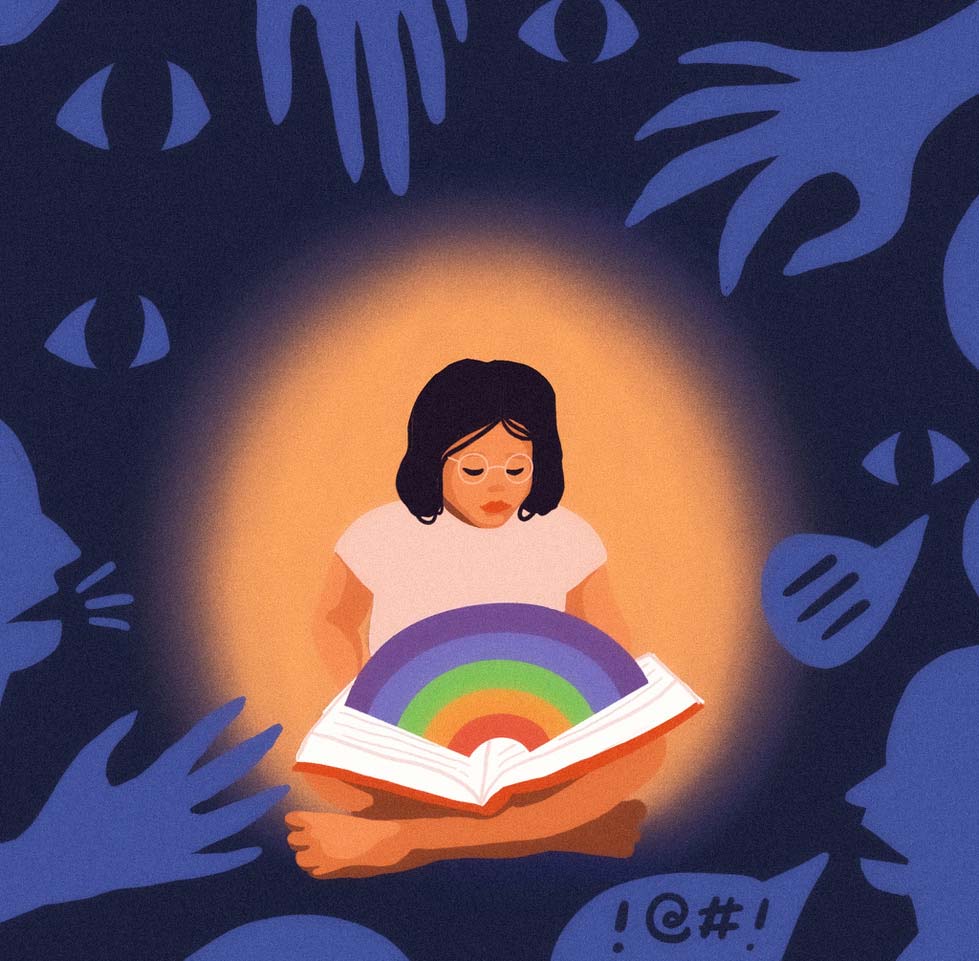In January 2022, Carolyn Burjoski made a presentation to the Waterloo Region District School Board (WRDSB) trustees questioning the age-appropriateness of two 2SLGBTQ+ books.
One was Rick by Alex Gino, which followed a boy’s realization of his asexuality, and the other was The Other Boy by M.G. Hennesey, which follows a trans boy’s journey of self-acceptance.
Chairperson Scott Piatkowski first issued a warning and then cut the presentation short after four minutes, citing concerns of her presentation infringing upon the Ontario Human Rights Code. Despite some trustees questioning his decision, it held up to a vote.
Burjoski retired as planned soon after the meeting but was not allowed to contact colleagues or students. Later, she filed a defamation lawsuit and a judicial review against WRDSB and Paitkowski.
“I am comfortable with everything that I have done and said. I think it was not only legally correct, but legally required. I think the board has a sound, legal position, but we will await the outcome of the proceeding,” Piatkowski said.
Piatkowski said that all delegates agree to certain rules before their delegation and the chairperson reserves the right to caution the delegate or to cut their presentation short should they violate those rules.
“We hear from many different points of view. We are, however, bound by the Ontario Human Rights Code. We’re a publicly funded body, we are a publicly regulated body,” Piatkowski said.
Burjoski is not the first teacher to question the age-appropriateness of Rick or The Other Boy. These books, among many others written by or for 2SLGBTQ+ people or people of colour, are often questioned or attacked.
Robin Stevenson is an award-winning queer author and the Book and Periodical Council of Canada’s Champion of Free Expression for 2022.
She speaks at libraries, schools and conferences across the continent.
Stevenson said the attempts to ban books are not about the age of the readers but the identities being represented.
“The attacks on books are really trying to erase those identities, not wanting children to learn about LGBTQ+ people, not wanting LGBTQ+ young people to see themselves represented,” she said. “It’s never just about the individual books.”
Stevenson said it is a good sign that books are being challenged. A few decades ago, there were no books to challenge. It’s important that people have access to all kinds of books, she said.
On her website, Burjoski outlines her perspective on the situation and includes video updates of the situation. She also includes full PDFs of her statement of claim and the WRDSB’s statement of defense. At the bottom of every page is a link to her GoFundMe.
“[During my delegation,] I read excerpts from two of these children’s books, criticizing the age-appropriateness of the sexual content,” she states.
“[S]chool boards are using language and human rights legislation as weapons to silence anyone who questions their policies. In my view, the message to all teachers is clear: if you speak up, you will be punished,” Burjoski states.
Piatkowski said that the students they serve are at the forefront of every decision the Board of Trustees makes.
“That includes all children who may identify as non-binary or trans, students who may have people in their families who are non-binary—we’re trying the we make sure that their rights are protected,” he said.
After the meeting, the WRDSB pulled the video of the meeting down from all their platforms.
“Boards must respect the rights of parents and teachers to free expression,” Burjoski states on her website.
Stevenson said that a platform is not guaranteed to all speakers.
“I think also people get confused about their right to express their views and their right to demand an audience for their views. That, yes, you are able to express your views. You’re not necessarily entitled to any particular platform for that,” she said.
Alex Gino, author of Rick, said in an email that writing for queer and trans children comes easy to them. A lot of literature is immersed in heterosexuality and they try to provide tools for children that do not fit that mould.
“If I can provide tools for young people learning about themselves and the world, I’m honored [sic] and delighted to do it. Writing is hard in general, but writing for and about young queer and trans kids makes it a lot easier,” Gino said.
“What was difficult was stumbling confused and unacknowledged in a world so saturated with heterosexuality that we don’t even see it,” they said.
Stevenson that attempting to ban books like Rick and The Other Boy are harmful to all children. Even if the attempt is unsuccessful, it results in harmful rhetoric surrounding people’s identities
“Young people are put in this position of having to hear a debate about whether or not people like them are somehow inappropriate,” she said.
“If we’re thinking these folks were inappropriate, what do we say about the children whose identities are represented in these books?” Stevenson said.
Gino said representation will not change people’s sexuality but will have many benefits for queer and trans children. Both Stevenson and Gino said more diverse books are important even for students that do not fit the demographics represented.
“Providing stories with LGBTQIAP+ to young people will not change their sexuality, but for queer and trans kids, it can help them feel not alone, which is invaluable for self-worth,” Gino said.
“And for straight and cisgender kids, it can provide a fuller [awareness] of who’s in the world. Especially given that queer and trans youth are at risk both of self-harm and hate-filled violence, books can literally save lives,” they said.
Stevenson said there is a need for diversity in literature available to children.
“We need more diverse voices. We need more stories written by people from underrepresented groups,” she said. “There’s so many stories that need to be told.”




Leave a Reply